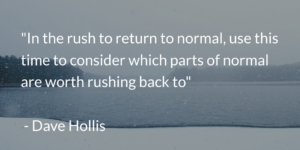I haven’t been able to post for a while because, well, I’ve been busy.
And, truthfully, somewhat overwhelmed.
At the outset of the pandemic I quipped that “Apparently, couples and families are not meant to be quarantined together, for undetermined amounts of time.” Like many I kept thinking it would be over……soon? (Remember the 2 week ‘lockdown?’)
COVID 19 has wreaked havoc with our lives this past year; it is hard to fathom so much change, so much loss. The impact of so many deaths. And, we have had to face these cruel losses without the rituals that typically function to comfort and ease the transition, for the living, and the dying.
The pandemic has robbed us of rituals, large and small. Funerals, weddings, holidays, bar mitzvahs, christenings.
Coffee with the neighbor, lunch with a colleague, my best friend’s milestone birthday.
Alarming spikes in anxiety, depression, substance use, overdose.
And so I’ve been busy, and frankly unable to do any of the kind of writing I generally like to do.
But what I can offer now is a small, curated collection of some articles written during the pandemic that spoke to me; in these, the authors gave language to what has transpired in the cultural landscape as it was happening.
It is now clear that the psychological impact of COVID 19 will long outlast the pandemic. In the July issue of The Atlantic, Jacob Stern writes about the unique aspects of COVID as a mental health crisis that make it quite different than other types of disaster situations:
Certain key tenets of disaster response no longer hold up. People cannot congregate at a central location to get help. Psychological first-aid workers cannot seek out strangers on street corners.
A pandemic, unlike an earthquake or a fire, is invisible, and that makes it all the more anxiety-inducing. “You can’t see it, you can’t taste it, you just don’t know,” says Charles Benight, a psychology professor at the University of Colorado at Colorado Springs who specializes in post-disaster recovery. “You look outside, and it seems fine.”
I have lived and practiced through disasters in the past, notably, 9/11 and Hurricane Sandy. But COVID 19 is decidedly different. Typically, when a disaster happens, like a fire or hurricane, it is finite, it occurs, ends, and then the rebuilding process can begin.
Someone struggling with the psychological effects of the pandemic is less like a fire survivor than a domestic-violence victim still living with her abuser, or a traumatized soldier still deployed overseas. Mental-health professionals can’t reassure them that the danger has passed, because the danger has not passed.
Indeed, it is the relentless quality of the pandemic that so heightened stress and anxiety – and the utterly ambiguous nature of living with COVID 19. Family rituals abruptly ceased, and new rules needed to be created. Safety, risk assessment and fear permeated the decision making for families who simply wanted to visit one another.
There were many things I struggled with during COVID, but perhaps none so much as the inability to be physically close to, and hug those I love, most especially my grown children. In Lost Touch: How a Year without Hugs Affects our Mental Health, the author discusses the human need for touch and the neurophysiology that scaffolds this most basic instinct:
I missed the smell of my friends’ clothes and my nephew’s hair, but, more than anything, I missed the groundedness only another human body can bring.
As social scientists do, we will look back and gather data concerning the unique circumstances brought on by this pandemic. For me, though, in the foreground is a stark reminder of the central importance of relationship in our lives. The comfort gained in time spent with loved ones – family and dear friends – is unmeasurable, impossible to quantify. And, apparently, very very necessary to our emotional health.
In what now seems like ‘the early days’ of COVID, I recall the headache, fatigue and general malaise at days end. Sure, couple & family work could be complex and intense, but this felt….different.
Then, I read about Zoom Fatigue.
I kept trying to look people in the eye as we engaged in conversation. Not possible. Yet, I intuitively searched, again and again, for that connection.
It was impossible, and I was exhausted.
Never before in my years of practice have I struggled, at the exact same time, with the exact same issues as my patients. I mean, we were all having the same conversations simultaneously with our families: “Do we get tested before we see each other? Can we take off our masks and eat together?”
The notion that being together could cause a loved one illness or possibly death was woven into the fabric of our birthday/holiday negotiations. I recall leaving my office and then speaking with my adult son; we were trying to plan a visit, and I came away from our discussion thinking: “We are all having the same conversations.”
In We Need to Talk about another Pandemic Mental Health Crisis: Therapist Burnout, Dr Jessica Gold interviews mental health practitioners who describe their unique challenges:
“I keep seeing all of these articles saying ‘the next wave of the pandemic will be in mental health’ or ‘mental health will be the next frontlines’ or ‘a mental health crisis is coming’ and I’m like… are we not already there? Because I think we’re already there. Everyone I know has a full caseload and is booked months out, like if there is an even bigger wave coming I don’t know how the system handles that when it seems already at capacity.”
Even before the pandemic, there was a shortage of mental health providers. For example, pre-pandemic there was a national psychiatrist shortage that was considered to be more severe than the shortage in any other specialty.
Clearly this has caused further strain on a system already struggling. The fields of “mental health” and “substance use” remain the most stigmatized, underfunded and tragically difficult for families to navigate.
Post pandemic, it appears we will have no choice but to address these longstanding concerns in our service delivery systems.
Perhaps this can become an opportunity, a time to grapple with the importance of this facet of healthcare. COVID 19 exposed, among many things, the significance of relationship and community.
I’ll leave you with a favorite quote from this COVID era; it is for those of us fortunate enough to have the time and ability to contemplate, organize and press for much needed change.





